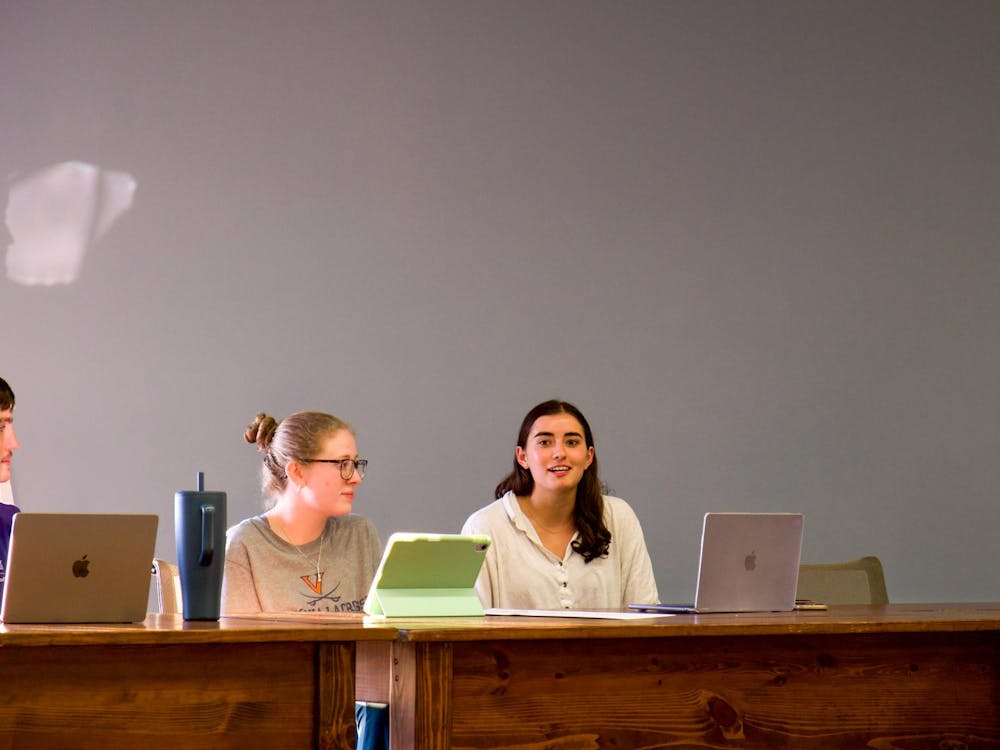For most high school students, the opportunity to attend a university in their home state at a discounted price is a given; however, for the children of illegal immigrants in the commonwealth of Virginia, it is not a guarantee.
Although these students live in-state, they are required to pay out-of-state tuition rates because of their parents' illegal domicile status, said Andrea Leeds Armstrong, University director of Virginia status.
"The Code of Virginia, which governs the determination of eligibility for in-state privileges, indicates that an applicant under the age of 24 is assumed to be financially dependent on his or her parents and is statutorily presumed to share his or her parents' domicile status," Armstrong said.
If a student's parents are undocumented or illegal immigrants living in Virginia, she said, in the eyes of the law, the student is also considered not to be a legal Virginia resident. This also applies to students who may have been born in the United States -- and are therefore U.S. citizens -- but whose parents remain undocumented immigrants, Armstrong added.
Students over age 18 can choose to refute this assumption by proving to the Virginia government that they have established a domicile independent of their parent, Armstrong said, through "clear and convincing argument."
Armstrong noted that specific instances of determining the in-state domicile status for the child of illegal immigrants has occurred "very infrequently for the University."
Though the University does not frequently deal with this issue, Virginia is not the only state facing the question of whether to extend in-state tuition rates for children of illegal immigrants, said Dan Hurley, director of state relations and policy analysis for the American Associate of State Colleges and Universities.
Hurley noted currently there are "10 states that specifically forbid it, and 10 states that allow it."
The remaining states do not have a clear policy on the issue, he said.
Those against granting in-state tuition privileges to undocumented residents argue that such privileges would condone illegal behaviors and pose a capacity issue for some universities, Hurley said, in which case "these individuals would be taking up seats that would otherwise be available to legal students."
On the other hand, many people feel it is not fair to punish students for their parents' domicile status, Hurley added.
"These individuals, especially those who were born in the U.S. to undocumented parents, or even those who have spent most of their time in the U.S.," he said, "are not going back to their parents' native land. That's the fact."
According to William Gheen, president of Americans for Legal Immigration Political Action Committee, granting in-state tuition only attracts more illegal immigrants, and that replaces American students in colleges and universities.
"It's upsetting to think of ... an American whose family has done nothing wrong having their seat [in college] taken by [an] illegal alien," Gheen said. "It is unfair to American families which have a birthright to control policies at these universities."
Gheen said ALIPAC has helped defeat in-state tuition for illegal aliens in several states.
Hurley noted, though, that undocumented students can receive primary and secondary education for free in the United States, which costs the nation about $8,000 per student.
"Why would we not spend an additional $25,000, approximately, for these individuals, when they will increase their contributions to society dramatically over time?" Hurley asked, pointing out that the ways children of illegal immigrants could contribute through the work force, civic life and public engagement would be ultimately beneficial.
This would result in a reduced dependence on state finances and an increase in the state revenues they would pay, he added.
Many states that grant in-state tuition for the children of illegal immigrants only do so if the students meet a number of requirements, such as graduating from high school, having parents who are employed and pay taxes, and maintaining permanent residence in that state, Hurley said, adding that "this is a much more rational approach."
The AASCU promotes offering in-state tuition rates to the children of illegal immigrants, Hurley said, because it believes this approach will be more beneficial in the long run. The issue has come to light over the course of the past few years and is closely associated with the national immigration debate, he said.
"It's a hot debate now, but I think that cooler heads and moderate rational will prevail," he added.
Whatever the outcome of the issue, it is clear there needs to be more clarity at the federal level, Hurley said, adding that because the laws are unclear as to whether the states should have more say in the matter, the solution lies in a developing a greater understanding.
"I think that there needs to be a greater public awareness ... of the cost benefit of allowing in-states rates for undocumented immigrants," he said.






